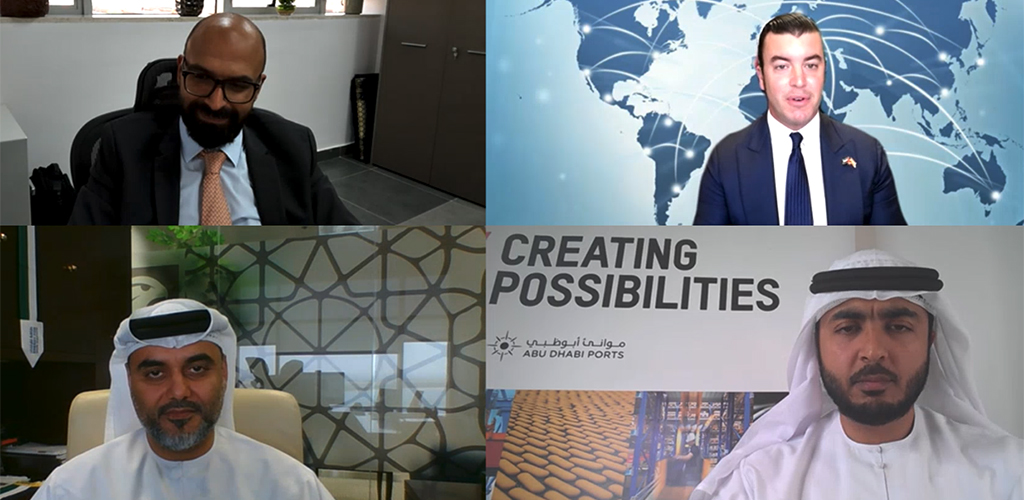Feb 09 | 2021
(MENA) Collaboration, Technology Keys for Moving Forward

By Carly Fields
This is not the time for complacency, business leaders in the United Arab Emirates told a Breakbulk Middle East Digital Special opening day session.
While the Covid-19 pandemic has “changed everything around us,” according to Khalid Al Marzooqi, commercial director at Khalifa Industrial Zone Abu Dhabi, finding opportunities from the pandemic’s challenges continues to be a driving force for change in the region.
“In the UAE we have shown a model for the world of how to face such pandemics and how to convert those challenges into business opportunities,” Al Marzooqi said.
Taking part in a panel on Navigating the Middle East Projects and Business Landscape in a Post-Covid World, panelists spoke of how their respective companies have risen to the challenge of the changed operating environment.
Capt. Mohammad Al Ali, senior vice president, ship management, at ADNOC Logistics & Services, explained that in the short term, ADNOC is prioritizing ramping up projects that were deferred as a result of the pandemic. Longer term, Al Ali said ADNOC will be examining how demand has been reshaped and how those changes will inform its services going forward. The pandemic prompted a sizable drop in projects in the Middle East, led by the two biggest economies of the UAE and Saudi Arabia (see “GCC Roars Back in 2021”).
Mohammad Jaber, chief operating officer and regional director of project logistics Middle East and Africa at Agility, said that the pandemic has driven home the urgency and the importance of working remotely, as well as the importance of digital tools. Agility started its digitalization journey before Covid-19 struck. That digitalization became an “important part of Agility’s business continuity plan” in dealing with the pandemic.
“Agility has used digital tools to keep trade flowing,” Jaber said. “The pandemic separated digital leaders from laggards; leaders have tools and make data driven decisions quickly. It’s an obvious lesson learned from the pandemic that digital capabilities, such as predictive modeling, big data and digital capabilities, provide a lot of stability to decision-making.”
Khalifa Industrial Zone Abu Dhabi, or KIZAD, saw tremendous uplift in warehousing demand during the pandemic, leading it to develop a 5 million-square-foot warehousing solution. Commercial Director Khalid Al Marzooqi told the panel: “Definitely the pandemic has changed everything around us. Some changes are positive, but some were definitely negative. We see more competition in supply chain management channels, especially when we speak about international companies.” He added that e-commerce is now mandatory for survival.
Further development of technology ranks high on Agility’s wish list for 2021, with Jaber highlighting four critical technologies for the supply chain to focus on: blockchain, Internet of Things, robotech and process automation, and data science. “These will help all over the market to reduce cost and increase efficiencies. Stop using the data to alert exceptions; start using the data to prevent exceptions,” he said.
But for Al Ali, technology alone will not pull the breakbulk sector out of the pandemic’s grips. For him, collaboration is key: “This is a time where we really need to partner with each other, grow our businesses, learn from each other, share technology and get through this pandemic safety.”
The session was moderated by Guillermo Cobelo Fernández, regional CEO of Técnicas Reunidas.
Speakers in image, clockwise from upper left: Mohammed Jabar, Agility; Fernández; Capt. Mohammad Al Ali, ADNOC Logistics & Services; and Khalid Al Marzooqi, Khalifa Industrial Zone Abu Dhabi.
WATCH THE REPLAY OF BUSINESS BRIEFING: MIDDLE EAST BUSINESS AND PROJECT OUTLOOK
